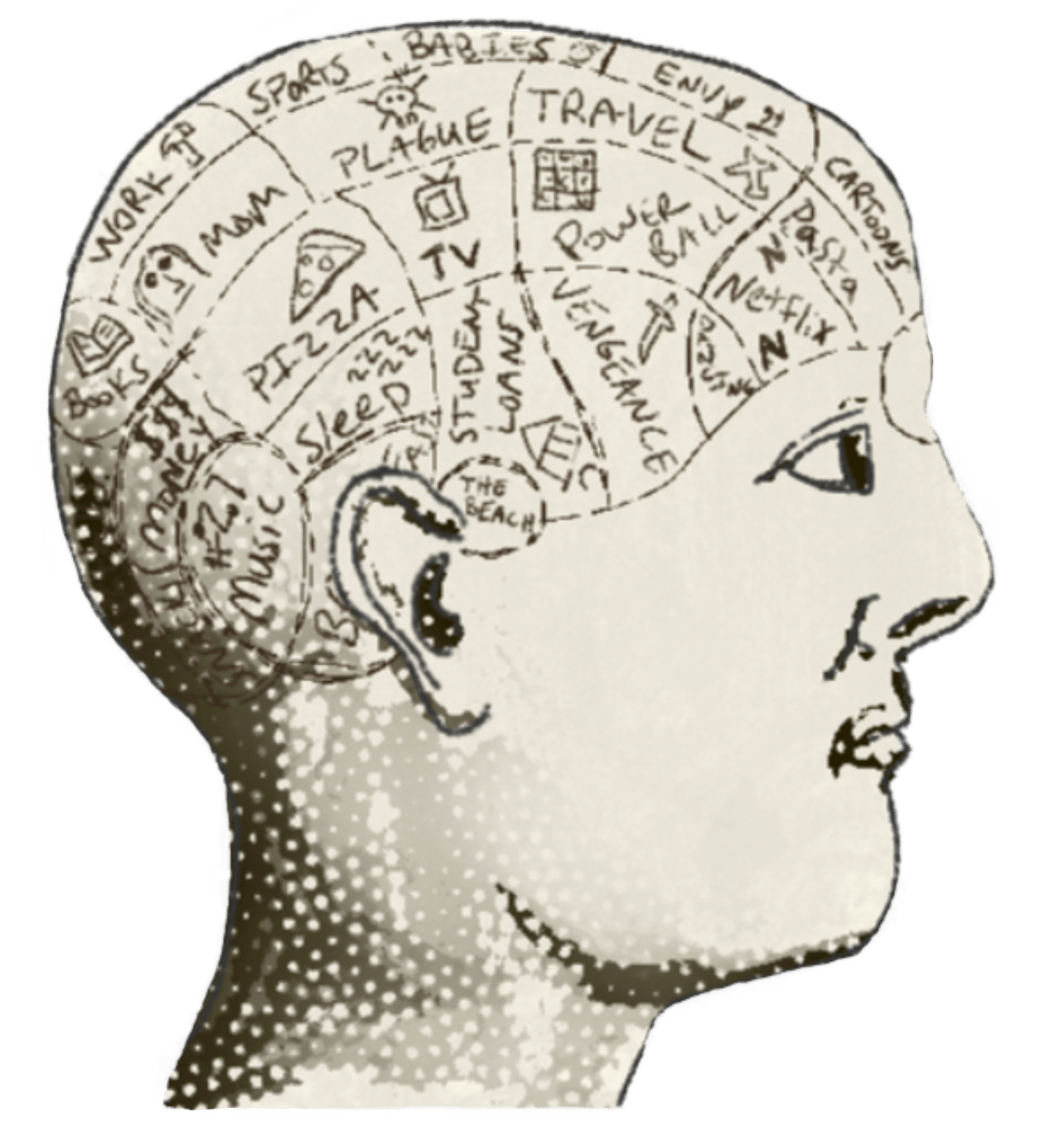Museums as Progress (MaP) is a community research and development firm. We help cultural organizations define their strategic purpose, prioritize community goals, and identify opportunities to support those goals through progress-space research.
What if people don’t want to be engaged by your museum?
Fires are engaging.
A mysterious rash
is engaging.
How often do you wake up hoping to be “engaged” by an institution?
Never
Because engagement is an organizational goal.
Never
Because engagement is only a byproduct of a person’s progress toward achieving a goal, not an end in itself.
Engagement without progress is meaningless.
Focusing on engagement can distract from more fundamental objectives and undermine museums’ impact. Rather than (or before) focusing on engaging audiences, museums can prioritize people’s goals.
Everyone has goals they’re trying to address. Goals can be long-term or short-lived; We can be more or less conscious of our goals. Goals can be situational (“I need to entertain my in-laws this weekend” or “I’m bored. What can I do today?”) or enduring and identity-driven (“How can I cultivate my child’s curiosity and love of learning?”). Museums are positioned to support some goals better than others, and each museum can choose which goals it wants to prioritize based on its mission.
When someone addresses a goal, they are engaged. Engagement is the shadow people cast when they’re trying to make progress toward a goal. Engagement is agnostic. A person can be engaged without making progress toward their goal. Failure can be just as engaging as success. Engagement is an effect, not a cause, and we use progress-space research as a tool to help museums focus on causes.
Relevance is similar to engagement. Museums strive for relevance just as they try to engage audiences even though no one is looking for things that are Relevant or Engaging. An organization is relevant only to the extent that it supports a person’s goal. Relevance, like engagement, is a byproduct of progress. Museums as Progress helps museums understand what fuels engagement and relevance by integrating progress-space research principles into their strategic decision-making.
Definitions
Progress: forward or onward movement toward a goal or desired state. “Museums as Progress” refers to museums as solutions that can support people’s goals.
Engagement: the investment of attention and energy in pursuing something that captures one's focus. Engagement isn't good or bad in itself. For example, a person can be engaged when planning a birthday party or a robbery. Both can be engaging activities. Museums often measure various forms of engagement and assume it indicates success, but engagement divorced from community goals or user outcomes provides no strategic intelligence about institutional value.
Our Approach
We operate seasonally, with focused periods of learning and integration followed by intentional breaks for reflection. This structure ensures sustained progress while preventing burnout — a practical example of prioritizing meaningful transformation over constant engagement. Each season explores a theme that grounds abstract principles in practical application, from Leadership to Listening, Mapping to Motivation.
Through three core labs, we move principles into practice:
Strategy Lab tests frameworks for progress-focused planning
Opportunity Research Lab uncovers how people pursue their goals
Integration Lab translates insights into institutional action
Our Partners
-

Kyle Bowen, Principal
Kyle is the founder of Museums as Progress. He helps cultural organizations redefine their strategic purpose and support community goals through innovative progress-space research. With expertise in user experience and research methodologies, Kyle cultivates a vibrant community of practice for museum professionals. His approach shifts museums from product-centric to people-centric strategies, increasing their relevance and impact. Through MaP, Kyle fosters a collaborative network that drives positive change in the cultural sector.
-

Kelly Cannon, Community Research Partner
Kelly is a community builder and content developer helping museums deepen audience relationships through compelling storytelling. At The Museum of Modern Art, she co-led Coursera courses that engaged over a million international learners in art education through peer learning communities. Her experience spans educational technology, where she coached museums and universities on community building and developed peer learning networks for executives, artists, and researchers. She holds an MA in Art History from the Courtauld Institute of Art and a BA from Yale University. A new-ish Californian, she's taken to edible gardening with her dog.
-

Dr. John Falk, Value Realization Partner
John reframes how museums demonstrate their value through his groundbreaking research on free-choice learning — the learning that occurs when people have significant choice and control over the what, where, and when of their experiences. John is the Founder and CEO of the Institute for Learning Innovation and Emeritus Sea Grant Professor at Oregon State University. His work reveals how cultural institutions support public wellbeing by fostering curiosity, personal growth, and enhanced physical and mental health. John’s research is transforming how museums understand and validate their impact on communities.
-

Rosie Siemer, Strategic Research Partner
Rosie is the founder of FIVESEED, a research and strategy partner for arts, culture, and conservation organizations. Rosie has guided dozens of museums in developing data-informed strategies to deepen audience engagement and build financial sustainability. Rosie authored Museum Membership Innovation and co-authored Membership Marketing in the Digital Age. She frequently facilitates workshops on audience development and speaks on choice architecture and the future of membership.



